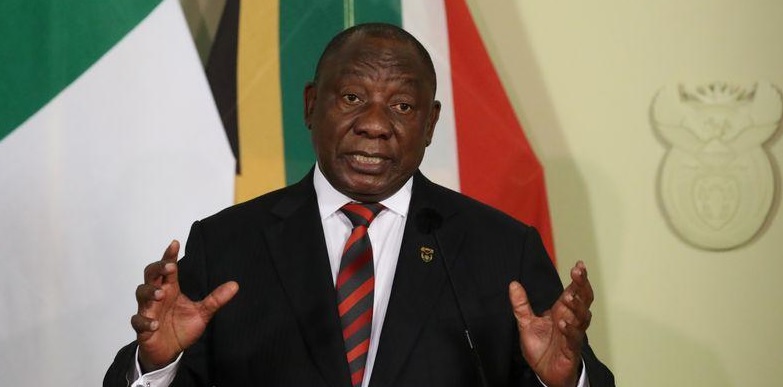
Essential Services to Remain in Place as South Africa Enters Lockdown
At the stroke of midnight on Thursday, South Africa will go on a nationwide lock-down with the exception of essential services. President Cyril Ramaphosa made the announcement on Monday evening, following a meeting on Sunday with the National Coronavirus Command Council. The lockdown is the South African government’s bid to contain and slow down the […]

At the stroke of midnight on Thursday, South Africa will go on a nationwide lock-down with the exception of essential services.

President Cyril Ramaphosa made the announcement on Monday evening, following a meeting on Sunday with the National Coronavirus Command Council.
The lockdown is the South African government’s bid to contain and slow down the spread of the Coronavirus in the country.
The announcement comes a week after the President declared the outbreak a national state of disaster.
The nationwide lockdown comes as South Africa saw a surge in the number of confirmed cases rising from 274 on Sunday to 402 by Monday 23 March 2020. (Today, Tues 24 March that COVID-19 number in South African has risen to 554.)
“The nation-wide lockdown is necessary to fundamentally disrupt the chain of transmission across society,” said the President during a televised address.
Exempt from this lockdown are:
- the health workers in the public and private sectors,
- emergency personnel,
- those in security services (such as the police, traffic officers, military medical personnel, soldiers), and
- other persons necessary to respond to COVID-19.
It will also include those involved in the production, distribution and supply of food and basic goods, essential banking services, the maintenance of power, water and telecommunications services, laboratory services, and those involved in the provision of medical and hygiene products.
Lockdown regulations
Individuals will not be allowed to leave their homes except under strictly controlled circumstances, such as to seek medical care, buy food, medicine and other supplies or to collect social grants.
During the lockdown, all South Africans will have to stay at home until midnight on Thursday 16 April 2020.
As the country fights to contain the spread, temporary shelters that meet the necessary hygiene standards will be identified for homeless people.
The President said sites are also being identified for quarantine and self-isolation for people who cannot self-isolate at home.
With exception for pharmacies, laboratories, banks, essential financial and payment services, including the Johannesburg Stock Exchange, supermarkets, petrol stations and health care providers, all shops and businesses will be closed.
“Companies that are essential to the production and transportation of food, basic goods and medical supplies will remain open,” said the President.
A full list of the categories of businesses that should remain open will be published.
Meanwhile companies whose operations require continuous processes, such as furnaces and underground mine operations, will be required to make arrangements for care and maintenance to avoid damage to their continuous operations.
“Firms that are able to continue their operations remotely should do so,” emphasised the President.
Provision will be made for essential transport services to continue, including transport for essential staff and for patients.
South Africa ramps up Coronavirus screening
This nationwide lockdown, the President said, will be accompanied by a public health management programme which will significantly increase screening, testing, contact tracing and medical management.
As the country ramps up its response to the virus, community health teams will focus on expanding screening and testing where people live, focusing first on high density and high-risk areas.
To ensure that hospitals are not overwhelmed, a system will be put in place for ‘centralised patient management’ for severe cases and ‘decentralised primary care’ for mild cases.
To further mitigate the spread, emergency water supplies – using water storage tanks, water tankers, boreholes and communal standpipes – will be provided to informal settlements and rural areas.
The South African National Defence Force (SANDF) has been deployed to support the South African Police Service in ensuring that the measures announced are implemented.
Source: SAnews.gov.za
